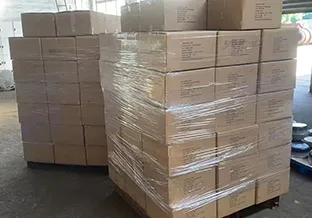
Safe and Non-Toxic Cookware Options for Healthy Cooking Practices
The Rise of Non-Toxic Woks A Healthy Alternative for Modern Cooks
In recent years, there has been a growing awareness about the importance of using non-toxic cookware in our kitchens. As more people become health-conscious and eco-aware, the demand for non-toxic woks has risen significantly. A wok is an essential tool in many Asian cuisines, known for its versatility and efficiency in cooking. However, traditional woks can sometimes be made from materials that may pose health risks. Therefore, understanding the options available for non-toxic woks is crucial for both health enthusiasts and everyday cooks alike.
Why Non-Toxic Woks?
One of the main reasons to choose non-toxic woks is to avoid harmful chemicals often found in conventional cookware. Many traditional woks are coated with non-stick materials that contain polytetrafluoroethylene (PTFE) and perfluorooctanoic acid (PFOA). These substances can release toxic fumes when overheated and may leach into food during cooking. Non-toxic woks, on the other hand, are crafted from safe materials that do not pose the same risks.
There are several safe alternatives available today. Stainless steel, cast iron, and ceramic-wrapped woks are some of the best choices on the market. These materials are not only safe for cooking but also offer excellent heat retention and distribution, which is crucial for perfectly stir-frying your ingredients.
Stainless Steel Woks
Stainless steel is a popular choice among chefs and home cooks alike due to its durability and resistance to rust and corrosion. A stainless steel wok does not react with acidic foods and maintains its appearance over time. When cooking with stainless steel, it’s essential to preheat the pan and use sufficient oil to prevent sticking. With proper care, a stainless steel wok can last for many years, making it an investment in both health and cooking quality.
Cast Iron Woks
non toxic wok

Cast iron woks are renowned for their ability to retain heat, making them perfect for high-heat cooking methods like stir-frying. When seasoned properly, a cast iron wok develops a natural non-stick surface that improves with age. Cooking with cast iron also provides the benefit of iron leaching into food, which can contribute to daily iron intake. Although cast iron woks require more maintenance than other materials, such as regular seasoning to prevent rust, they offer exceptional cooking results that many chefs swear by.
Ceramic-Coated Woks
Ceramic-coated woks are an excellent non-toxic alternative that combines the benefits of easy cleanup with safe cooking surfaces. Unlike traditional non-stick coatings, ceramic does not contain harmful chemicals such as PTFE or PFOA. It has a naturally non-stick surface that allows for healthy, low-fat cooking. However, while ceramic-coated woks can be easier to clean, they may have a shorter lifespan than stainless steel or cast iron, as the coating can wear off over time if not treated carefully.
Environmental Considerations
Choosing a non-toxic wok is not just a personal health decision; it is also an environmentally responsible choice. Many non-toxic options are made from recyclable materials, and brands that focus on health-conscious cookware often practice sustainable manufacturing processes. By opting for non-toxic woks, consumers support companies that prioritize both health and the environment.
Conclusion
As the awareness of health issues related to cookware expands, non-toxic woks have emerged as a practical and beneficial solution for home cooks and chefs alike. With options like stainless steel, cast iron, and ceramic-coated woks, everyone can find a suitable and safe cooking tool that meets their needs. By making informed choices about cookware, individuals can contribute to a healthier lifestyle and a cleaner planet. So, whether you are stir-frying vegetables, searing meat, or preparing a delicious noodle dish, consider investing in a non-toxic wok—it’s a step towards cooking healthier meals while keeping your kitchen safer.
-
Season Cast Iron Perfectly with GPT-4 Turbo TipsNewsAug.01,2025
-
High Quality Cast Iron Cookware - Baixiang County Zhongda MachineryNewsAug.01,2025
-
Premium Cast Iron Pan: Durable & Perfect HeatNewsAug.01,2025
-
High Quality Kitchen Durable Black Round Cast Iron Cookware Pancake Crepe Pan-Baixiang County Zhongda Machinery Manufacturing Co., Ltd.NewsAug.01,2025
-
Cast Iron Cookware - Baixiang County Zhongda Machinery | Nonstick, Heat ResistanceNewsAug.01,2025
-
High Quality Kitchen Durable Black Round Cast Iron Cookware - Baixiang County Zhongda Machinery | Non-Stick, Heat Retention, DurableNewsJul.31,2025


